
A Global UN Agenda
The 2030 Agenda for Sustainable Development was adopted by all United Nations Member States in 2015. In the words of the UN, it “provides a shared blueprint for peace and prosperity for people and the planet, now and into the future.” It is an ambitious set of goals.
Seventeen Goals were identified. As most of you will know, poverty and deprivation are caused by complex and interrelated issues. Poverty goes hand-in-hand with health, education, inequality, economic development, as well as environmental and climate change issues. It is therefore hoped that strategies to tackle one goal will also assist in achieving other goals.
How We Fit In
Dharma Care is an Associate Member of the Susila Dharma International Association (SDIA) and its connections to the humanitarian work of the United Nations. SDIA is a highly respected partner in giving us access to projects and in-country expertise.
Dharma Care is therefore also playing its part in tackling some of the UN’s Sustainable Development Goals (SDGs).
Our Vision certainly aligns with these goals: “a compassionate world where all are valued and supported to live joyful, meaningful and sustainable lives”.
Our Contribution
Very few organisations can claim to cover all seventeen of the UN’s SDGs, but we do contribute to six of them. Listed below are a few examples – and if you would like to help Dharma Care, either through a general donation to help cover our costs, or by donating to a project, please visit our website.
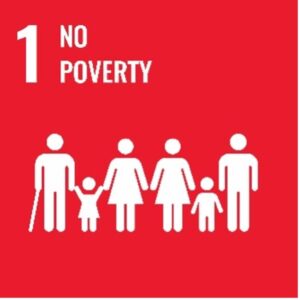
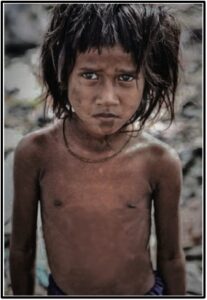
As mentioned previously, poverty is a result of many factors. All of the projects listed below under the other Sustainable Development Goals contribute to alleviating poverty. The image above is of Srey Lak, after whom the Dharma Care program to assist destitute girls in Cambodia is named.
She grew up on a rubbish tip in desperate poverty. As a result of funding by our donors, she had access to many of the key ingredients to raise her beyond poverty: safe housing, adequate nutrition, health care and quality education. After 12 years, in which she toped her class in maths each year and learnt to speak English, she now has the skills to find her own way in life.


There are many ways to tackle hunger. The best way is to build self-sufficiency and resilience through technical education and the development of new skills. For several years, Yayasan Permakultur Kalimantan (YPK) was funded by Dharma Care donors to teach permaculture farming techniques to young people in Central Kalimantan. The indigenous Dayak people were forest-dwelling hunter gatherers but their forests have disappeared leaving sandy, non-productive soils from which to grow crops. Permaculture enriches the soil to grow the crops for their survival.
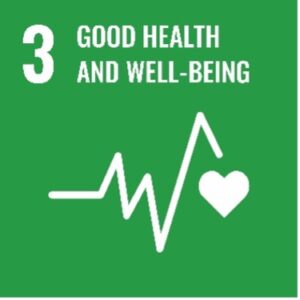

For six years Dharma Care has been the sole funder of a health program for elderly rural workers in Java. If you can’t work in Indonesia, it is difficult to avoid poverty. There is no social safety net. We fund health checks, nutritional support, vegetable growing, health education and social support. During COVID, many people suffered even more severe deprivations and so, working with our fabulous local partners, Yayasan Usaha Mulia (YUM), we were able to fund the supply and distribution of food parcels. This was life-saving work.


Cambodian girls have low levels of education, poor employment prospects and few opportunities to move out of poverty. Those destitute girls that are orphaned, or grow up on the rubbish tips and streets have no chance. They are not only poor but become highly vulnerable to all sorts of abuse in order to survive. Dharma Care’s Srey Lak Program for Girls works with a fantastic multiple award-winning school (People Improvement Organisation) to provide board, first-class education, meals and health care. This is one of the most rewarding programs that we support. Some of the girls have gone from rubbish tip to university. This not only transforms the life of that girl, but creates generational change. Quality education is one of the main escape routes from poverty.
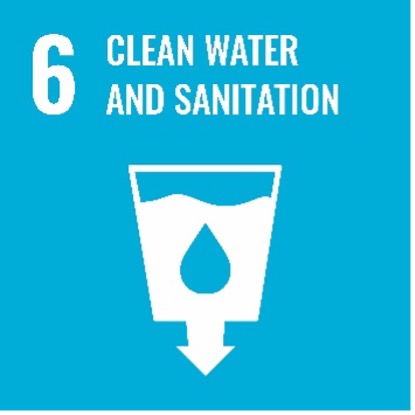
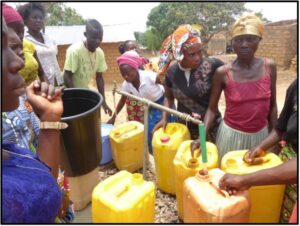
In 2016, Dharma Care funded the building of wells in the Congo. Wells have effects beyond providing regular access to safe drinking water. In these communities, it is the women who travel long distances to water sources. This can take many hours for a return trip. This traditional role means women cannot work and their kids go with them instead of attending school. So, village wells not only provide safe water, but also release women for paid work and release children for school.
Donating to Dharma Care
If you would like to be part of the changes we love to facilitate in the lives of the most destitute, you can make a tax-deductible donation directly below, via Dharma Care or one of our projects.
Dharma Care: building bridges between people who care and people who need.
